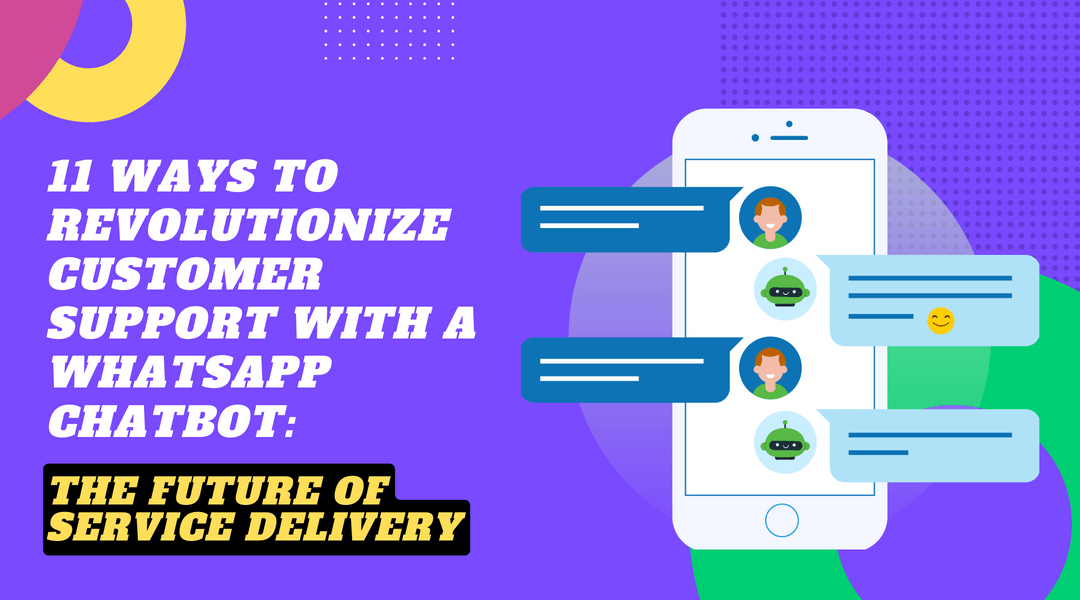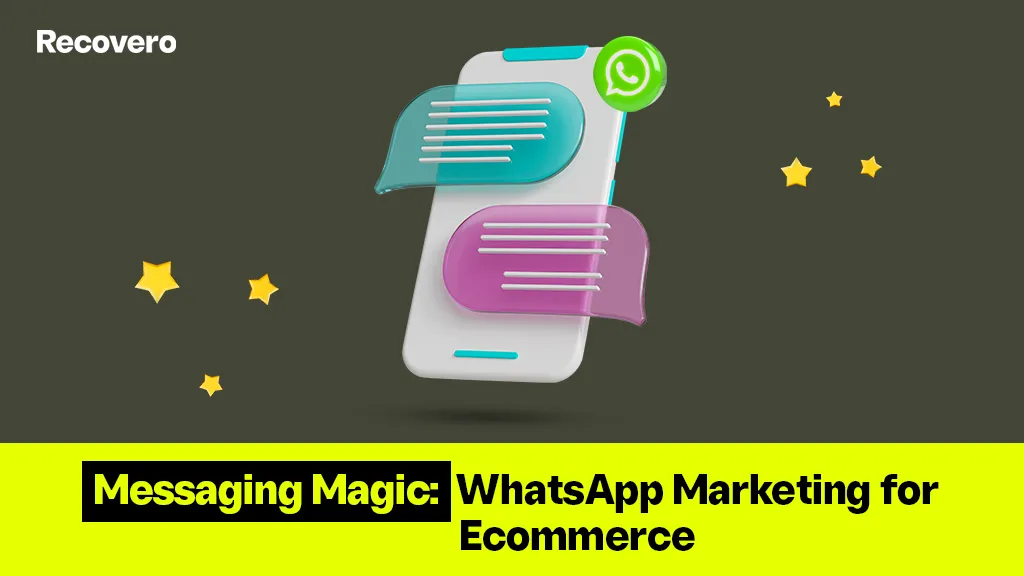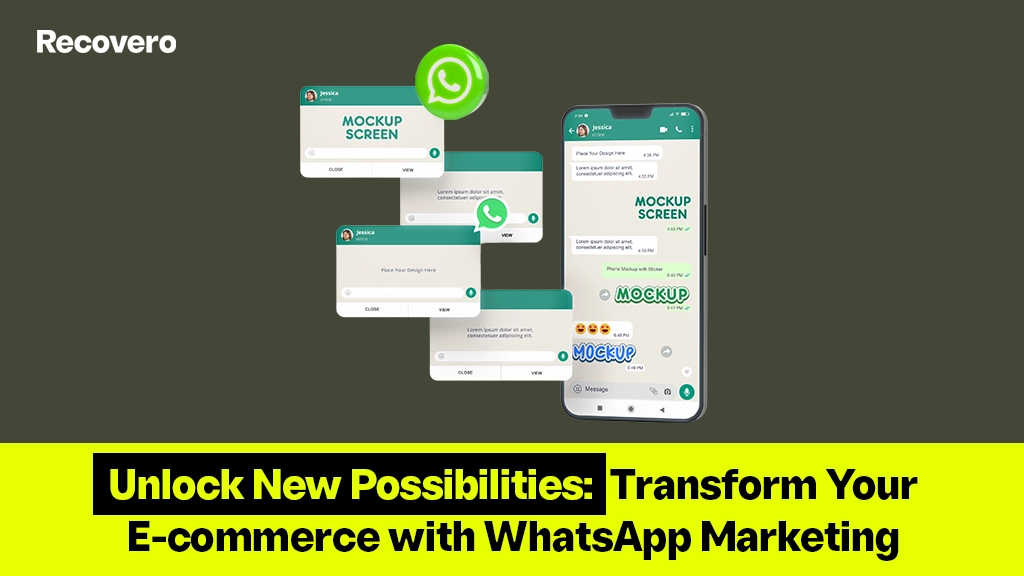11 Ways to Revolutionize Customer Support with a WhatsApp Chatbot: The Future of Service Delivery
Customer service is the support a company provides to resolve customer issues and ensure satisfaction. It is crucial for a company’s success, as it directly impacts customer satisfaction and loyalty. A positive customer service experience can lead to repeat business and positive word-of-mouth recommendations, while poor customer service can result in frustration and decreased business. In today’s competitive market, providing excellent customer service is essential to differentiate a company and build strong customer relationships.
The world of e-commerce is constantly evolving, and with the rise of digital technology, the way customers interact with businesses has changed dramatically. Gone are the days of calling customer support hotlines and waiting on hold for hours, now customers expect quick and convenient solutions to their problems.
This is where chatbots come in, providing businesses with a new way to offer efficient and effective customer service, 24/7. In this article, we will explore the many ways that a WhatsApp chatbot can improve customer service for an e-commerce store. The purpose of this article is to examine the advantages of utilizing a WhatsApp chatbot for an e-commerce store. Chatbots can improve customer support, increase efficiency, and provide valuable insights into customer behavior. These benefits can lead to increased customer satisfaction and sales for the e-commerce business.
In this blog we’ll focus on :
- What is WhatsApp Chatbot
- How Chatbots work on WhatsApp
- 11 ways on Benefits of Using a WhatsApp Chatbot for Customer Service
- Implementing a WhatsApp Chatbot for Customer Service and steps for setting up a chatbot on WhatsApp
- Best practices for chatbot design and functionality
- Conclusion
What is a WhatsApp Chatbot?
A WhatsApp Chatbot is a computer program that utilizes natural language processing (NLP) and machine learning algorithms to provide automated customer support through the WhatsApp messaging platform. The chatbot can mimic human conversation, respond to customer inquiries, and handle basic transactions.
WhatsApp Chatbots are designed to offer 24/7 customer support, freeing up human customer service agents and allowing companies to provide quick and efficient service to their customers. They can respond to frequently asked questions, provide product information, and even handle transactions, all while collecting customer data and providing personalized recommendations.
The use of WhatsApp Chatbots allows businesses to offer convenient, around-the-clock customer service, enhance the customer experience, and reduce the workload of human customer service agents. It is a cost-effective solution for companies looking to improve their customer service and provide a better overall customer experience.
How do Chatbots work on WhatsApp?
Chatbots on WhatsApp work by using natural language processing (NLP) and machine learning algorithms to provide automated customer support. When a customer sends a message to the chatbot, the chatbot uses NLP to analyze and understand the customer’s request and accesses its pre-programmed responses to determine the best response. If the chatbot is unable to find a matching response, it may escalate the inquiry to a human customer service agent.
Chatbots can handle multiple customer inquiries simultaneously, offer 24/7 support, and collect customer information for future use. They are a cost-effective solution for businesses looking to improve their customer service and enhance the customer experience. By providing quick and efficient support, chatbots on WhatsApp can free up human customer service agents and increase customer satisfaction and loyalty.
Benefits of Using a WhatsApp Chatbot for Customer Service

- 24/7 Availability
One of the key benefits of using a chatbot for customer service is that it is available 24/7. Customers can get the help they need, whenever they need it, without having to wait for business hours. This is especially important for e-commerce stores, as customers may have questions or concerns outside of regular business hours. With a WhatsApp chatbot, customers can get the answers they need, right when they need them.
- Quick Response Time
Chatbots can provide quick response times, as they are programmed to respond instantly to customer inquiries. This means that customers can get the answers they need quickly and efficiently, without having to wait for a human representative to become available. Quick response times can help improve customer satisfaction and reduce customer frustration, as customers will feel like their concerns are being addressed in a timely manner.
- Increased Convenience
Another benefit of using a WhatsApp chatbot for customer service is the increased convenience it provides. Customers can access the chatbot from the comfort of their own homes, using their smartphones, without having to make a call or visit a store. This is especially beneficial for e-commerce stores, as customers can get the help they need while they are browsing the website or making a purchase.
- Reduced Workload for store owners
Using a chatbot for customer service can also reduce the workload for store owners. Chatbots are able to handle a large volume of customer inquiries, freeing up human representatives to focus on more complex or sensitive issues. This can help store owners save time and increase efficiency, while also improving the overall customer experience.
- Cost-Effective Solution
Chatbots are a cost-effective solution for providing customer service, as they require fewer resources and manpower than traditional customer support methods. This can help e-commerce stores save money and allocate resources toward other areas of the business, while still providing excellent customer service.
- Personalize Experience
WhatsApp Chatbots can also provide a personalized experience for customers, as they can be programmed to remember customer preferences and history. This allows the chatbot to provide more relevant and targeted responses, improving the overall customer experience. For example, a chatbot can remember a customer’s past purchases and make recommendations based on their previous buying behavior.
- Multi-Lingual Support
With a chatbot, e-commerce stores can offer multi-lingual support, making it easier for customers from different countries to get the help they need. This can help improve customer satisfaction and increase sales, as customers are more likely to purchase from a store that offers support in their native language.
- Automated Responses
Chatbots can provide automated responses to common customer inquiries, freeing up human representatives to focus on more complex issues. This can help improve response times and reduce the workload for store owners, while also improving the overall customer experience.

- Integration With Other Platforms
Chatbots can be integrated with other platforms, such as social media and messaging apps, making it easier for customers to get the help they need. For example, a WhatsApp chatbot can be integrated with an e-commerce store’s website, allowing customers to access the chatbot directly from the website. This can improve the customer experience, as customers can get the help they need in one place, without having to switch between different platforms.
- Gathering Customer Feedback
WhatsApp Chatbots can also be used to gather customer feedback, providing valuable insights for e-commerce stores. By asking customers questions about their experience, chatbots can gather information on what is working well and what areas need improvement. This can help store owners make informed decisions and improve the overall customer experience.
- Improving Customer Satisfaction
Ultimately, the use of a WhatsApp chatbot for customer service can help improve customer satisfaction. By providing quick and convenient solutions to customer inquiries, e-commerce stores can ensure that their customers are happy and satisfied with their experience. This can lead to increased customer loyalty, repeat business, and positive word-of-mouth recommendations.

Implementing a WhatsApp Chatbot for Customer Service and steps for setting up a chatbot on WhatsApp
Implementing a WhatsApp Chatbot for customer service can improve the overall customer experience and increase efficiency for businesses. To set up a chatbot on WhatsApp, follow these steps :
Choose a chatbot provider: Research and select a chatbot provider that offers integration with WhatsApp and meets your business needs.
Integrate the chatbot with WhatsApp: Connect the chatbot with your WhatsApp business account to enable customers to interact with the chatbot through the messaging platform.
Program the chatbot: Program the chatbot to respond to customer inquiries, access customer information, and provide personalized recommendations. You can also program the chatbot to escalate inquiries to human customer service agents if necessary.
Test the chatbot: Test the chatbot’s functionality and performance to ensure it is functioning as expected. This is a good opportunity to make any necessary adjustments or improvements.
Launch the chatbot: Once the chatbot has been tested and is functioning correctly, launch it and start providing customer support through WhatsApp.
By implementing a WhatsApp Chatbot for customer service, businesses can improve the overall customer experience and increase efficiency by providing quick and efficient support. Setting up a chatbot on WhatsApp is a straightforward process and can be done by following these simple steps..
Best practices for chatbot design and functionality
Use clear, concise language: Use simple language that is easy for customers to understand. Avoid using technical terms or jargon that may confuse customers.
Provide helpful responses: Ensure that the chatbot provides helpful and informative responses to customer inquiries. If the chatbot is unable to provide a helpful response, it should escalate the inquiry to a human customer service agent.
Personalize the customer experience: Use customer information to personalize the customer experience. For example, the chatbot can provide personalized product recommendations based on previous purchases.
Offer 24/7 support: Ensure that the chatbot is available 24/7 to provide customer support. This will increase customer satisfaction and reduce the workload of human customer service agents.
Continuously improve: Regularly evaluate the performance of the chatbot and make improvements as necessary. This will ensure that the chatbot continues to provide the best possible customer service.
By following these best practices for chatbot design and functionality, businesses can ensure that their WhatsApp Chatbot provides efficient, effective, and personalized customer service. This will improve the overall customer experience and increase customer satisfaction and loyalty.

Conclusions
WhatsApp chatbots offer numerous benefits for customer service, including round-the-clock availability, fast handling of common queries, and improved response times. Chatbots also enable simultaneous interactions with multiple customers and provide valuable data insights.
E-commerce stores seeking to enhance customer service should consider implementing a WhatsApp chatbot. To ensure success, the chatbot must be fully integrated and trained to handle a wide range of queries. Regular evaluation and a backup plan for complex inquiries are also crucial.
The use of chatbots in customer service is poised to continue growing, with advancements in NLP and machine learning resulting in increasingly sophisticated chatbots capable of delivering personalized experiences. Companies embracing this technology will be well-positioned to provide efficient customer service in the future.





